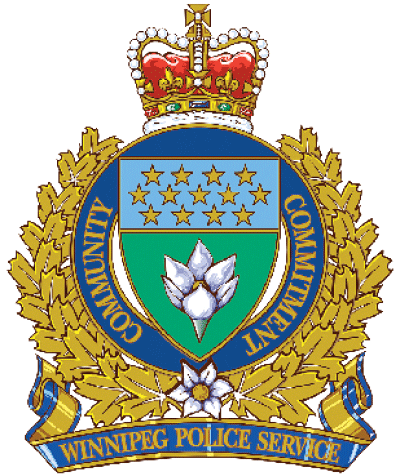
Winnipeg Police Services
Crime Prevention Column
9-1-1 has long been a trusted lifeline between you and the emergency services you require. That will never change.
Whether to report a medical emergency such as a heart attack or severe motor vehicle collision, a house fire or crime in progress, the men and women serving in our 9-1-1 Communications Centre are always ready to take your call.
The 9-1-1 emergency line and the 204-986-6222 non-emergency phone lines handle more than 600,000 calls each year. They do so with professionalism, genuine care and a commitment to our community.
In April, we join the global community recognizing those efforts as part of National Public Safety Telecommunications Week, which runs from April 8 to 14. While the Communications Centre team takes ownership of this demanding job, they are also quick to recognize the continued success of this service truly represents a partnership with the community.
Most often, it’s your calls for service that prompt the mobilization of critical emergency services.
Ensuring that trusted lifeline
You will soon hear more talk of “NextGen 9-1-1” in Canada in the months ahead.
In the past 20 years, advancements in modern communications technology have created the need for a more advanced system to access emergency care. While the existing 9-1-1 system has been a success story for more than 30 years, technological advances mean we have to adapt as technology advances.
New wireless and IP-based communications devices are being developed rapidly, offering text and video messaging capabilities. Unfortunately, the current 9-1-1 system was never intended to receive calls and data from these new and emerging technologies.
In short, a significant overhaul is underway to the nation’s 9-1-1 systems. Most of this work is done on the infrastructure and behind the scenes.
Calling 9-1-1
What you need to know most about this work is that there will always be someone available to take your 9-1-1 emergency call and get you the help you need. Nothing changes in that you can still call 9-1-1, and we will still pick up the phone as we do today and connect you to the help you need.
Calling 9-1-1 can seem an intimidating call to make.
It is one of the busiest operations in the Service, but the Comm Centre is here to help you under the most trying of circumstances and what is for many their darkest moments.
Each call taker receives extensive training and mentoring before being allowed to take your calls. That is followed up with constant monitoring and continuing education.
The first – and perhaps most important question you will be asked is “What is the location of your emergency?”. We need that location if the call is somehow lost or you disconnect.
It is no longer a given that the call taker knows your location. That is especially true if you are calling from a cell phone. When every second counts, searching out this information by other means can genuinely be the difference between life or death.
Once we have that information, we will ask about the nature of your emergency, so we know what resources need to be deployed (police, fire, ambulance). We will also take your information, but it is always critical we get that location first and foremost.
When you speak to a Call Taker, time is critical. They are efficient and well trained. We ask that you follow their prompts, and they will get you through your difficult time. But it would be best if you stayed focused.
Reporting Non-emergencies
The Call Takers that answer 9-1-1 are also the Call Takers that answer our non-emergency phone line: 204-986-6222.
The police non-emergency line should be used if you report something that does NOT meet the definition of an emergency but where police may still be required. This may include:
• suspicious circumstances;
• crimes that are not in progress and where the suspect has left; and
• some property crimes.
The non-emergency police line should only be used for police-related matters.
Our community partners
Should you have questions or need assistance with non-emergency City of Winnipeg Services such as parking ticket payments, public work requests for street repairs and maintenance, bicycle recovery or licensing – please call 311.
Another new initiative we are excited to partner with is Manitoba 211. Launched by United Way Winnipeg, it is another critical piece of our community’s safety net connecting you with government, health, and social services available across the province. The service helps Manitobans looking to find the right community or social resource but don’t know where to start.
While we are not responsible for those services, we continue to form partnerships with these services to help when you most need help.
Our partnership with you is our most valued, and the team in the Comm centre is proud to serve and support you. But none of these services – certainly our Police Communications 9-1-1 Service – can never be as effective as they should be without you. If you see something suspicious, say something. Please give us a call. Your prompt action can save a life, avert danger and make our community stronger and safer.
Learn more about 9-1-1 through our website: https://winnipeg.ca/police/TakeAction/reporting_crimes.stm
James Ham is the Communications Coordinator for the Winnipeg Police Service
Photo: Ken Heaton, CC BY-SA 4.0, via Wikimedia Commons

